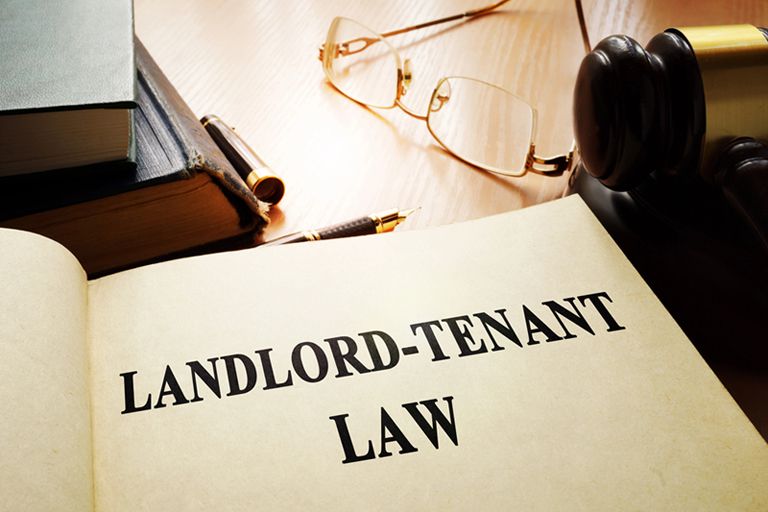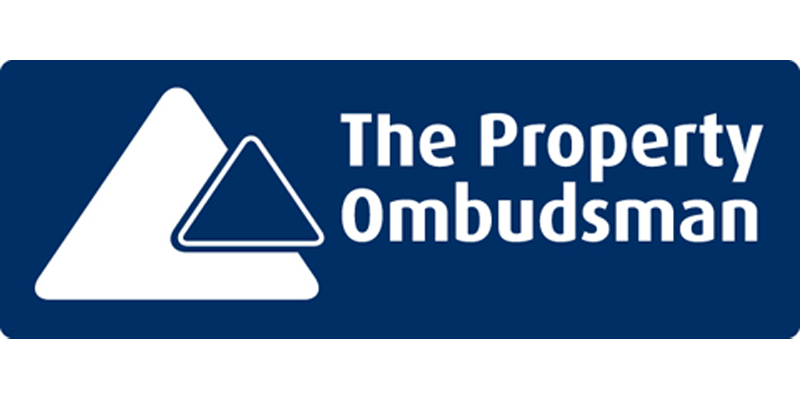I have headed up Cross Keys Lettings Maintenance department since 2020 and this has proved to be challenging but also hugely enjoyable! As soon as tenants report a maintenance issue on their property, I then look into it further and report directly to the landlord of the property. It goes without saying that we get some urgent issues like water leaks, boilers breaking down and so I have to sweet talk contractors into dropping what they are doing to attend immediately!
One of the most frustrating things for me is when I set up a visit for a contractor to attend a property and the tenant either forgets or has to go out so the contractor cannot gain access and I have to set up the visit again. I have learned that regardless of what a tenant or a contractor says to me, I insist that they take a key!
We have had a couple of amusing issues such as when I attended a property to get rid of a mouse in the cupboard and yes, I did it! I’ve crawled under cupboards to stops small leaks, had my hands down drains, unblocked sinks and done all sort of other yukky things but I am a really pro-active person I just get on with it. I have joked to my Directors that I could do with a workman’s tool belt but this still hasn’t arrived yet!
On the whole I have a very good relationship with my Landlords, as at the end of the day they are putting their properties into our hands and trusting us to look after them as best as we can. I do believe that the key to keeping all parties happy is communication. I do my utmost to keep everyone updated at all times but sometimes I do have to put my “school-maam” voice on to gee up the Contractors! I am a great believer in kindness and understanding and this does go a long way in my role but of course I also have to take a firm stance on occasion.
It goes without saying that tenants can get quite stressed about things so I always do my best to reassure them and deal with the problem as quickly and efficiently as I can. I think (hope) that they do appreciate what I do.
When I have a stressful day, like we all do sometimes, there is nothing I love more than a dip in the sea to calm down and relax. Some people laugh as they think I am mad, especially on a freezing January morning, but I find it very therapeutic and I would recommend it to anyone. I started sea swimming during the covid epidemic and it is now part of my life and I would be lost without it!
The worst thing is when the weather is bad and I cannot go in – it sometimes ruins my day! If you don’t see me swimming you will catch me in my garden looking after my plants which I have grown for many a year. I also love walking and often go with with a friend so that we can put the world to rights, which I think we all do, especially during these difficult times. Nothing ever gets solved but it’s fun! A good talk, laugh and cry, on occasions, does us all good and helps us get ready for a fresh start to another day.
How to choose the right solicitor for you and your transaction – When selling or purchasing a property.
Summary:
As we all know buying and selling a property is one of the biggest things you will do and we understand that this comes with worry and also stress. When choosing your desired solicitor, finding the right point of contact is extremely important. Your desired choice can impact the outcome of your sale or purchase whether it’s leasehold, freehold or commercial or due to legal reasons.
Choosing a solicitor for your needs from the start:
One of the main things is making sure your solicitor is made aware and understands your specific legal needs, so identifying your requirements from the start is crucial to avoid any bumps in the road. This can be anything from just a normal selling and buying transaction, to a transaction where there are more complex needs being a separation / divorce, a complex lease transaction or a probate transaction. Knowing your legal needs will help you narrow down the field of potential solicitors with the experience that will be required for your transaction.
Recommendation for potential solicitors:
If you are new to the selling and buying process, or have sold and brought a property before but was not satisfied with your chosen solicitor at the time, one of the most reliable ways to find a proactive solicitor is through recommendations. This could be from friends, family members and also the estate agent who is dealing with your property.
We understand that some clients believe estate agents only recommend solicitors to “gain commission” however this is not the case. As we deal with solicitors daily, it comes to light which solicitors have a reputable background and we also come across ones that unfortunately don’t. It is our duty of care to act in the best interest of our clients, as we of course want to recommend solicitors in which we have experienced transactions with and have also received great feedback.
It’s a common frustration that online solicitors don’t respond to you, and this tends to be the case. Emails will get lost and calls get missed with no returned contact so it’s reassuring when you have a local solicitor acting for you, knowing you can arrange an appointment to meet with your solicitor to raise or go through any concerns in person.
The end result for all parties involved is that we all look for a smooth, and steady process. However, where obstacles do come up, you as the client want to have the confidence your acting solicitor can deal with the issues promptly and also go “The Extra Mile” where required.
My advice would be choosing a local solicitor.
Fees and Comparing:
We also recommend you obtain 2-3 solicitors’ quotes from recommendations. This way, before making a decision you can compare the initial quotes and decide by liaising with the solicitors, which one you feel you have the most confidence in and whether they are the right solicitor for your transaction. Solicitor quotes can vary depending on the solicitor’s expertise and the complexity of your transaction i.e., if it’s a Leasehold? Is it a listed building? are there any restrictions or covenants on the property?
All these factors take a big part in the initial quotation. Don’t forget to discuss the breakdown of fees and the payment structure during your first interaction with the solicitor. This will help you avoid any financial surprises down the road. Remember, the cheapest option is not always the best option.
The importance of Communication from your appointed Solicitor:
Good communication skills are one of the most essential things to look out for, especially in what could be a stressful and tough time. Effective communication can give you the confidence to trust and also build a rapport with your solicitor, along with managing all parties’ expectations by making sure you are both on the same page, at the same time.
Lastly, choosing the right solicitor is a decision that should not be rushed. Take the time to research by looking into reviews for the individual and the company, liaise with multiple solicitors (2-3), and consider all aspects including their fees, the communication received to date and most importantly, do you feel confident and could you trust your appointed solicitor?
Hopefully by following these steps, you can ensure that you are well-represented from the start with a pro-active solicitor, with confidence that you will reach a point of exchange of contracts with completion following.
It is well documented that we, as a nation, have had some particularly challenging times in the last few years including covid, gas and electricity prices going sky high, interest rates going up, rents going up, to mention but a few! The fact that gas and electricity prices have risen so much has had an impact on people’s energy usage and this has meant that people have not heated their properties as much as they would ordinarily do, due to being afraid of the enormous bills these would create.
As a result of this, there has been a huge increase in the amount of condensation that is in people’s homes, which has, in turn, been detrimental to their standard of living and in some cases their health. There is a real lack of knowledge when it comes to things like condensation and black spot mould but the rise in it has meant that we, as a Company, are finding ourselves trying to inform and educate people what causes it and how to treat it. It is understood that there are other types of damp such as rising damp and water ingress, which are entirely different things and would need a specialist to investigate further.
The most common type of damp found in properties is caused by condensation. As you can imagine, just by living in a property, moisture is created by cooking, bathing & showering, washing & drying clothes and even breathing! Condensation occurs when moisture laden air is cooled to a point where it can no longer hold all its moisture and it will then go to the coldest part of the house, which is invariably an external wall that does not open to the elements. Over time, the condensation can then start to turn into black spot mould, which can be dangerous to health if the spores are inhaled in sufficient volume. Unbelievably, there are 100’s of species of mould that are carried in the air that can settle and grow if the conditions are right.
The best way to keep the levels of condensation down is to produce less moisture by following the tips below:
- Cover saucepans whilst cooking & do not leave kettles boiling.
- Do not dry your washing inside the property.
- Always close the bathroom door when showering / taking a bath.
- Always close the kitchen door when cooking.
It is also particularly important to heat the property but sadly some homes are only heated for part of the time; this can result in condensation occurring when the rooms are unheated. This has been a huge issue over the last 18 months or so due to the energy crisis, which has impacted people’s affordability to use their heating. Keeping the whole home consistently warm will reduce condensation. This is better, and may be cheaper, than having intermittent heating to higher temperatures of parts of the home.
As well as heat, it is also imperative that properties are well ventilated, which will help remove the moisture from the atmosphere. Please see some tips below, which will assist in keeping the air moving:
- Ventilate kitchens and bathrooms when in use. After use open the windows wider to remove the remaining moisture.
- Keep windows on “air lock” or ensure the windows “trickle vents” are open (if fitted).
- Ensure that any extractor fan you have in the kitchen or bathroom is switched on when the rooms are in us and for approximately 20 minutes thereafter (they are usually set to a timer for this).
- Ensure that your tumble dryer is vented outside (if applicable).
- Wipe off wet surfaces, for example, where condensation has formed on windows or after using the shower.
- Use a dehumidifier if you have one available to you.
- Ventilate cupboards and wardrobes. Avoid putting too many things in them as this stops the air from circulating. Where possible, position wardrobes and furniture against internal walls.
- Leave a space between the back of the wardrobe and the wall.
In simple terms, if you see black spots around your window or on your walls then that is black spot mould, which is caused by a lack of ventilation coupled with a lack of heat. It is our enemy, so immediately wipe it away and then introduce both heat and ventilation to the room. I am sure you have seen some horrific examples on the news, but these are the extreme and it is usually a combination of condensation, water ingress and even some rising damp. Nevertheless, it is important to keep on top of the issue but if you feel it is getting out of control then speak to a specialist to see if there is an underlying cause.




















































